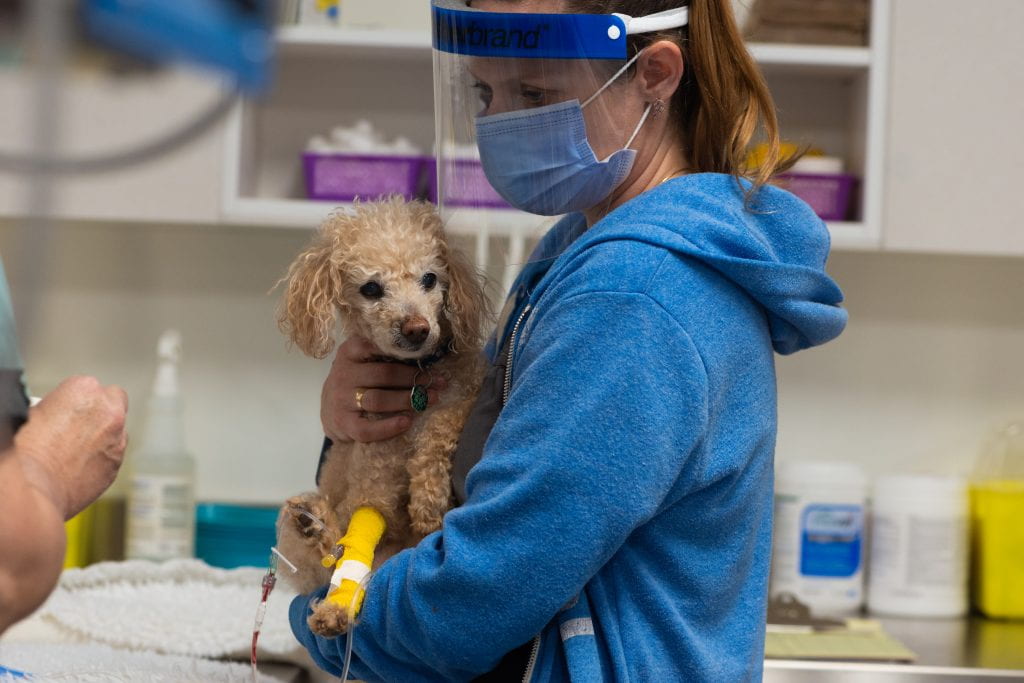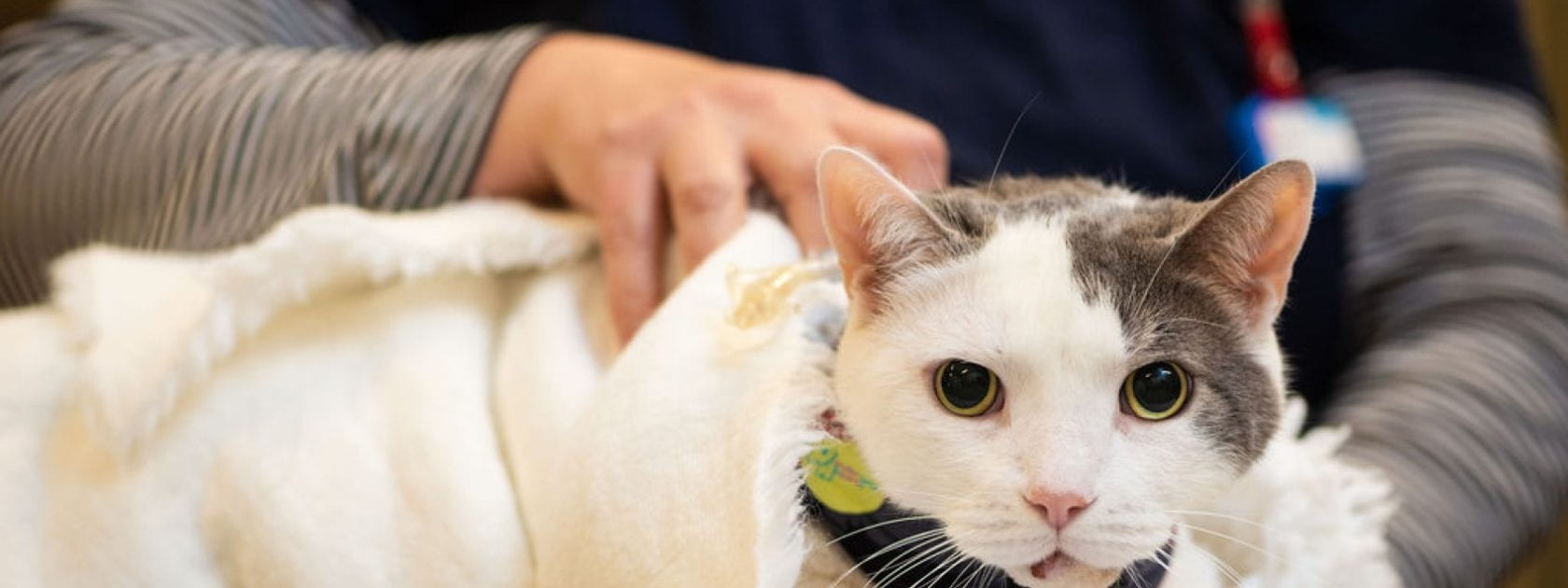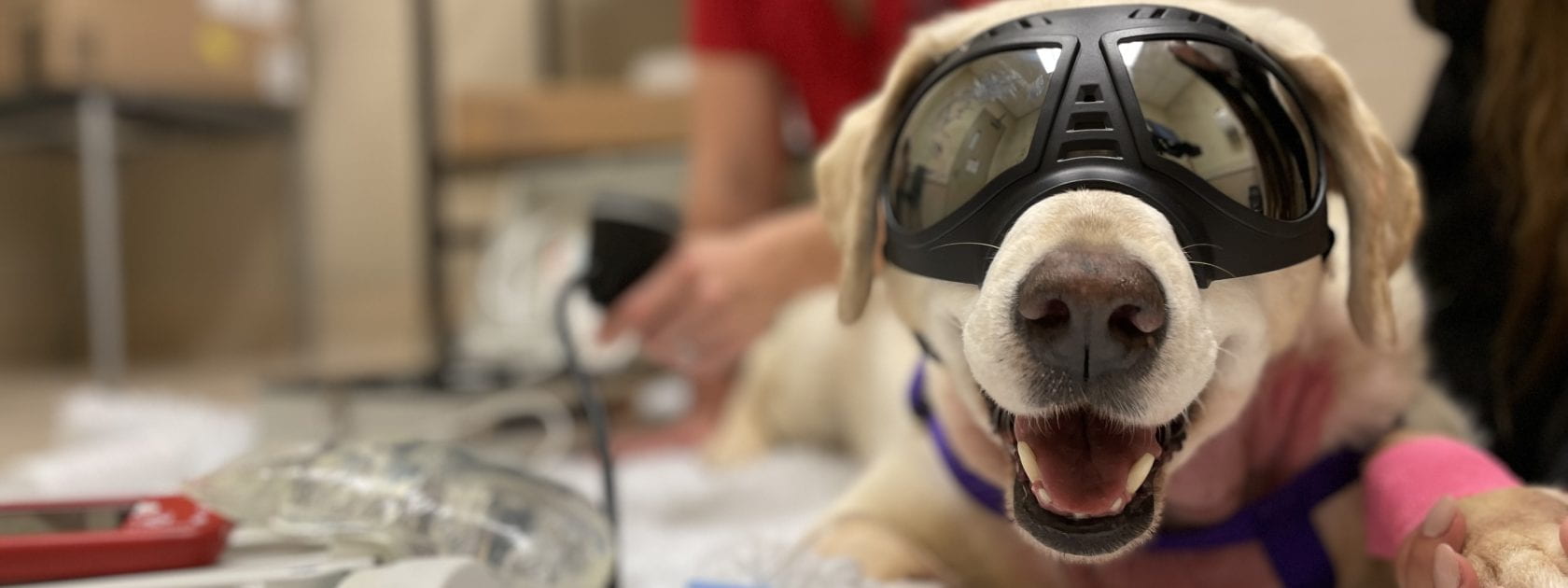What is Translational Health Research?
As a component of One Health, Translational Health Research unites basic science, veterinary health research, and human health research. Translational health research brings scientific discoveries out of the lab and into the clinic through the development of new treatments that benefit animal and human health.
The Challenge
Development of new and effective therapies for cancer patients is one of the most pressing medical challenges we face today. Currently, cancer therapies developed with traditional preclinical rodent models have a 94% failure rate in generating therapeutic benefit in human clinical patients. While the current rodent models have relevance and are important in the therapy development pipeline, they have several limitations, including genetic homogeneity, size and biological complexity differences, as well as lack of spontaneous cancer occurrence. Part of the low therapy success rate is attributed to an absence of predictive translational models that more closely replicate human cancer progression and response to therapy. Learn More
Research Focus

Companion animals, including pet dogs and cats, share many diseases and disorders with humans, ranging from cancers to cardiac diseases to psychiatric disorders. Additionally, our pets have huge genetic diversity, and live in a shared, complex environment with humans. As such, naturally occurring diseases in companion animals present an almost perfect model—and a largely untapped opportunity—for the development of new disease treatments.
This opportunity resides within the realm of translational health research, which unites basic science, veterinary health research, and human health research. Translational health research brings scientific discoveries out of the lab and into the clinic through the development of new treatments that benefit animal and human health. Learn More
Translational Health Research at OVC
As one of the top five veterinary schools in the world with both veterinary and human health expertise, OVC resides at the nexus of translational health research, where animal and human health meet.
OVC has made multiple strategic investments over the past 15 years to position itself to lead in the translational health research space, including building the Comparative Clinical Research Facility, establishing multiple centres and institutes such as the Institute for Comparative Cancer Investigations, and growing a world-class cadre of faculty across the translational health spectrum.
Bench to Bedside will enhance collaborative, translational work between basic scientists conducting benchtop translational research, veterinary clinician-scientists conducting veterinary clinical trials, clinician-scientists conducting human clinical trials, and industry partners.






